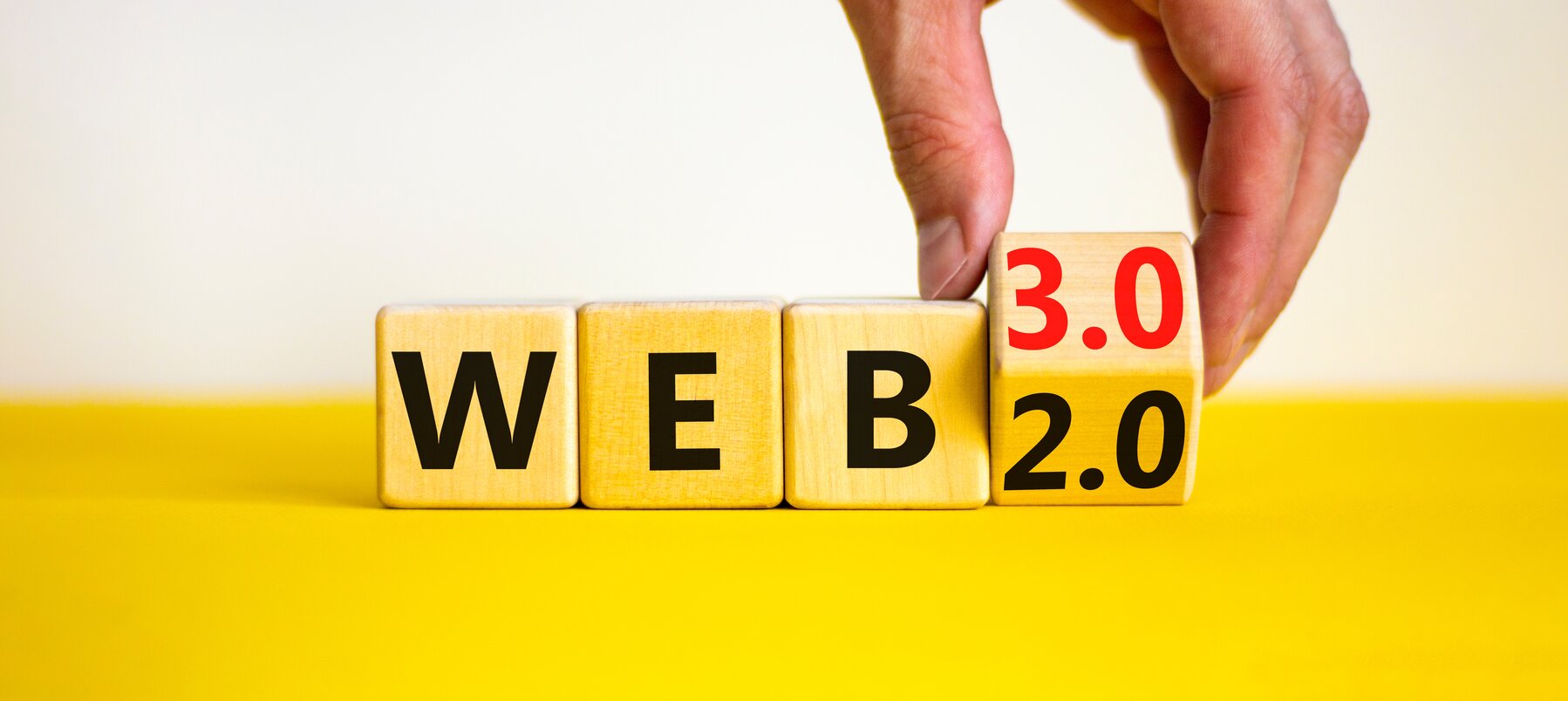Web 3.0 could lead to a more democratized internet
Can you imagine living in a world without the internet?
What if we were to tell you that the internet is set to get reimagined: The internet is a fast changing beast, and has evolved from being merely a text based non-interactive medium to one that is interactive and rife with possibilities. Web 3.0 is the next big step and it promises to usher in a new epoch that is unlike anything that we have seen before.

Image Source: 101 Blockchains
One of the biggest facets of the upcoming Web 3.0 is the emphasis on decentralized protocols. What this means is that there will be a reduce reliance on huge digital giants such as Youtube, Netflix, and Amazon. So, why does web 3.0 espouse greater importance in a post pandemic world? Let’s take a closer look based on insights from Binance.
Understanding Web 3.0 better
The goal of Web 3.0 is to develop open, connected, and intelligent websites and web apps with better machine-based data understanding. Web 3.0 is envisaged to be a fair and transparent network where people can engage without worrying about their security or privacy being compromised. The term was coined by Gavin Wood, Polkadot’s founder and the co-founder of Ethereum. In a nutshell, Web 3.0 will be driven by AI, machine learning, and blockchain technology. Since, Web 3.0 is still being worked upon, its perception and the technologies powering it are subject to change. A fundamental shift in Web 3.0 will be the focus on content ownership by users and support for open digital economies. Users may engage in the governance and management of the protocols directly with Web 3.0, rather than merely using free tech platforms in exchange for our data: This means that people, not just customers or things, can become participants and stockholders.
In a nutshell, Web 3.0 could lead to the foray of a truly decentralized attention economy powered by the internet; it is this possibility that makes Web 3.0 so very exciting.
What Web 3.0 can bring to the table?
- Decentralized distribution of information.: Web 3.0 is an interesting consonance of technologies that can offer various benefits. Some of the expected benefits of Web 3.0 are as follows: With intermediaries out of the equation in a decentralized framework, user data will not get influenced by a third party. This liberty minimises the likelihood of censorship by governments or companies, as well as the effectiveness of DoS attacks. Web 3.0 enables the spread of cooperative governance frameworks for formerly centralised products. A joke, a piece of art, a person’s social media output, or tickets to a concert are all examples of tokenization.
- User centric information: Larger data sets supply algorithms with more information to study as more products become connected to the Internet. This will enable them to provide more accurate information that is tailored to the needs of each individual user. Another facet is the semantically inclined data; finding the ideal results when utilising search engines might be difficult at times. Over time, they have improved their ability to discover semantically relevant results based on search context and metadata. As a result, web browsing on Web 3.0 becomes more convenient due to its semantic inclination for data, allowing one to quickly discover the information needed.
- Enhanced advertising and marketing: Web advertisements are unavoidable. However, if the advertisements are more appropriate to one’s requirements, they may be beneficial rather than annoying. By employing sharper AI algorithms and targeting specialised audiences based on consumer data, Web 3.0 intends to improve advertising. While we see already see targeted ads today, Web 3.0 could take it to the next level with the user having more control on the ads he or she chooses to see. What’s more is that the decentralized nature of Web 3.0 can allow users to earn tokens by watching advertisements. Isn’t it high time that users are awarded for the time spent watching ads and this facility is not limited to only certain browsers and platforms such as Brave?
- Open Source: Imagine not waiting forever for bug fixes to arrive and even being able to fix bugs or loopholes yourself. On Web 3.0, open source technologies could be a big part of the democratized experience. Many apps and platforms would be built on open source software that is created by an open and accessible community of developers and executed in full view of the world.
What is the business impact of Web 3.0?
The impact of Web 3.0 on businesses will be to make them more transparent and user-centric. The blockchain will ensure that users have better control over their data and businesses will be able to leverage AI to offer customized experiences to users that match user preferences.
Businesses, both old and new, will open the doors to Blockchain and the advantages that the technology brings with it. Business apps will also receive a Blockchain upgrade. Web 3.0 would focus on a decentralized and trustless internet for users and businesses alike. Finally, Web 3.0 will be better equipped to make new technologies such Augmented Reality, Virtual Reality, and the Internet of Things work in consonance. The end result will be businesses being able to create rich and immersive 3D powered experiences that blur the lines between the real and the virtual world. Finally, the advent of tokenization will also make such experiences more financially rewarding for end users.
The biggest downside of Web 3.0 and its most significant barrier would be that businesses would need better and more powerful hardware. Web 3.0 could render most enterprise hardware obsolete or in dire need of an upgrade. Which is why, the transition to Web 3.0 would be required to be a careful balancing act between cost and technology benefits.



